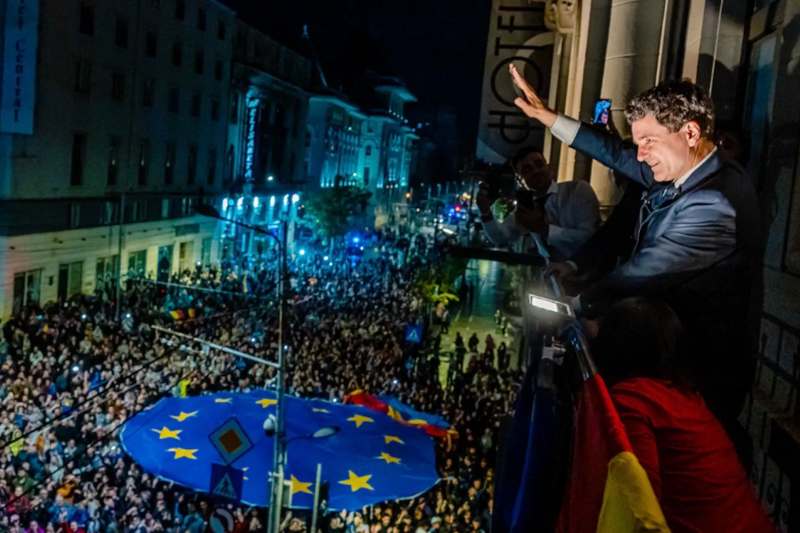
The Romania Election 2025 has come to a dramatic close with reformist Nicușor Dan defeating nationalist George Simion in a tense and closely watched runoff. The results of this election are set to reshape not just Romanian politics, but the direction of its democracy.
This year’s Romanian presidential elections were not just about personalities—they were about principles, identity, and the nation’s future in Europe.
With over 65% turnout, the election 2025 showed that Romanians are engaged and determined to shape their future. Long lines formed at polling stations both in Romania and abroad, especially in countries like Germany, the UK, and Italy where the Romanian diaspora remains politically active.
The stakes were high. Romania’s last attempt at presidential elections in 2024 was annulled after alleged interference. This time, people wanted their voices heard, and the Romania election mattered more than ever.
The presidential runoff saw two dramatically different candidates.
George Simion, the face of the nationalist Alliance for the Unity of Romanians (AUR), campaigned on anti-globalism and national identity. He appealed to rural voters and those frustrated with the political elite.
Nicușor Dan, an independent with a strong anti-corruption stance, positioned himself as a modern leader for a modern Romania. His supporters included younger voters, professionals, and urban populations who desired EU alignment and institutional reforms.
These were not just two candidates. They were two visions of what the Romanian elections could bring.
When the votes were counted, Nicușor Dan claimed victory with 54% of the vote. His win sent a clear message: Romania’s people have chosen a pro-European, reform-driven path.
In his victory speech, Dan called for unity and promised to govern for all Romanians. He highlighted the importance of rebuilding trust in institutions and strengthening ties with both the EU and NATO.
For supporters of democracy and transparency, the result of the Romania election 2025 was cause for cautious optimism.
Although he conceded defeat, George Simion criticized the media and political class. He alleged that the mainstream election news was biased and failed to cover the voices of ordinary Romanians.
Still, his support base remains strong. Many believe Simion is positioning himself for future leadership and may shape the opposition in Parliament.
Despite losing the Romanian presidential elections, Simion has proven that his political movement is far from fading.
The outcome of the Romania Election 2025 holds deep implications. For one, it confirms the nation’s democratic resilience. After the 2024 electoral turmoil, this vote restored public confidence.
Second, the result influences how future Romanian elections may be approached. Voter mobilization, digital transparency, and combating disinformation were critical parts of this cycle and are likely to define electoral strategy moving forward.
Third, it signals a rejection of divisive populism—at least for now.
As he prepares to take office, Nicușor Dan must immediately address a list of pressing issues.
Romania’s economy is still grappling with inflation and wage disparities. Healthcare and education need urgent reform. Infrastructure, especially in rural areas, lags behind European standards.
Additionally, Dan must work across a divided political landscape. The Romanian elections 2025 may be over, but governing will be an even bigger test.
This election was not just about internal politics. It also affects Romania’s international standing.
Under Dan, Romania is expected to continue its role as a reliable member of the EU and NATO. In a region increasingly challenged by geopolitical instability, Romania’s stance matters more than ever.
The Romania election 2025 outcome reassures Western allies, while also challenging the government to prove that promises made during the campaign will be kept.
The Romanian elections 2025 were a battle of visions. A choice between nationalism and integration. Between frustration and reform. And voters made their voices loud and clear.
Romanians have chosen a path of continuity, accountability, and forward momentum. Whether Nicușor Dan can fulfill the expectations placed upon him remains to be seen.
But one thing is certain: Romania has spoken. The democracy is active, engaged, and evolving.